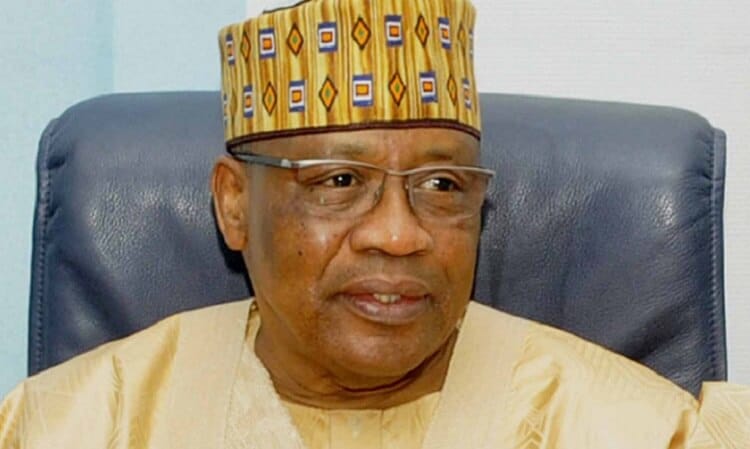
Former Head of State, Ibrahim Badamosi Babangida (IBB), has revealed details of the foiled coup allegedly led by his childhood friend, General Mamman Vatsa, and the difficult decision he faced in choosing between personal loyalty and national security.
In excerpts from his autobiography, ‘A Journey of Service’, launched on February 20, 2025, Babangida recounted how early warnings about Vatsa’s alleged coup plot first surfaced as mere “rumours.”
Bellnews learnt that he initially dismissed the claims, believing them to be fueled by jealousy over his close relationship with Vatsa.
However, he sought advice from fellow officers, including Generals Nasko, Garba Duba, and Wushishi, and ordered covert investigations.
Uncovering The Coup Plot
According to Babangida, intelligence agencies later uncovered “incontrovertible evidence” that Vatsa had financed officers to facilitate the coup attempt.
Babangida said, “When the decibel of the stories rose too high, I confronted Vatsa himself after reporting the rumours to more senior colleagues like Generals Nasko, Garba Duba, and Wushishi. Nasko intervened and tried to find out the truth from Vatsa. Vatsa flatly denied it all, but the covert investigations by the military and other intelligence services continued.”
He further revealed that one of the arrested officers, Lt-Col. Musa Bitiyong, admitted receiving ₦50,000 from Vatsa, a payment Vatsa claimed was intended for a farm project. However, previous allegations against Bitiyong in past coup attempts weakened his defence.
Alleged Plans To Attack Key Infrastructure
Intelligence reports indicated that the coup plot included plans to bomb Eko Bridge in Lagos, sabotage Air Force assets, and even hijack or shoot down the presidential aircraft.
Describing the scheme as “dastardly,” Babangida expressed feelings of deep personal betrayal, given his decades-long friendship with Vatsa.
Following the conclusion of the military tribunal, Babangida affirmed that execution was the only viable option to ensure national stability.
He said, “They had planned a bloody coup which would have plunged the country into darkness. I had to choose between saving a friend’s life and the nation’s future.”
Vatsa and nine co-conspirators were executed in March 1986. While Babangida admitted the decision was painful, he maintained that it was necessary for Nigeria’s stability.
The former Head of State said, “Everyone who had signed on to a military career understood clearly what it meant to plan a coup and fail. The penalty was clear and unmistakable.”
Personal Reflections And Political Reactions
Babangida admitted that he was “somewhat depressed” over Vatsa’s death but insisted that his responsibility to uphold national security overruled personal ties.
He added, “The nation’s stability and the cohesion of the armed forces were too high on the scale of priorities to be sacrificed for personal considerations. The law and the imperatives of order and national security are overriding.”
According to him, members of Vatsa’s family and various political groups later attempted to politicize the execution, but he remained firm that the decision was crucial for maintaining military discipline and national security.
Despite Vatsa’s role as Minister of the Federal Capital Territory under his administration, Babangida noted that some senior officers resented his appointment because Vatsa had not played a role in the removal of General Muhammadu Buhari.
Nonetheless, he insisted that he “remained true” to their friendship and “bent backwards to accommodate his excesses and boisterousness.”

